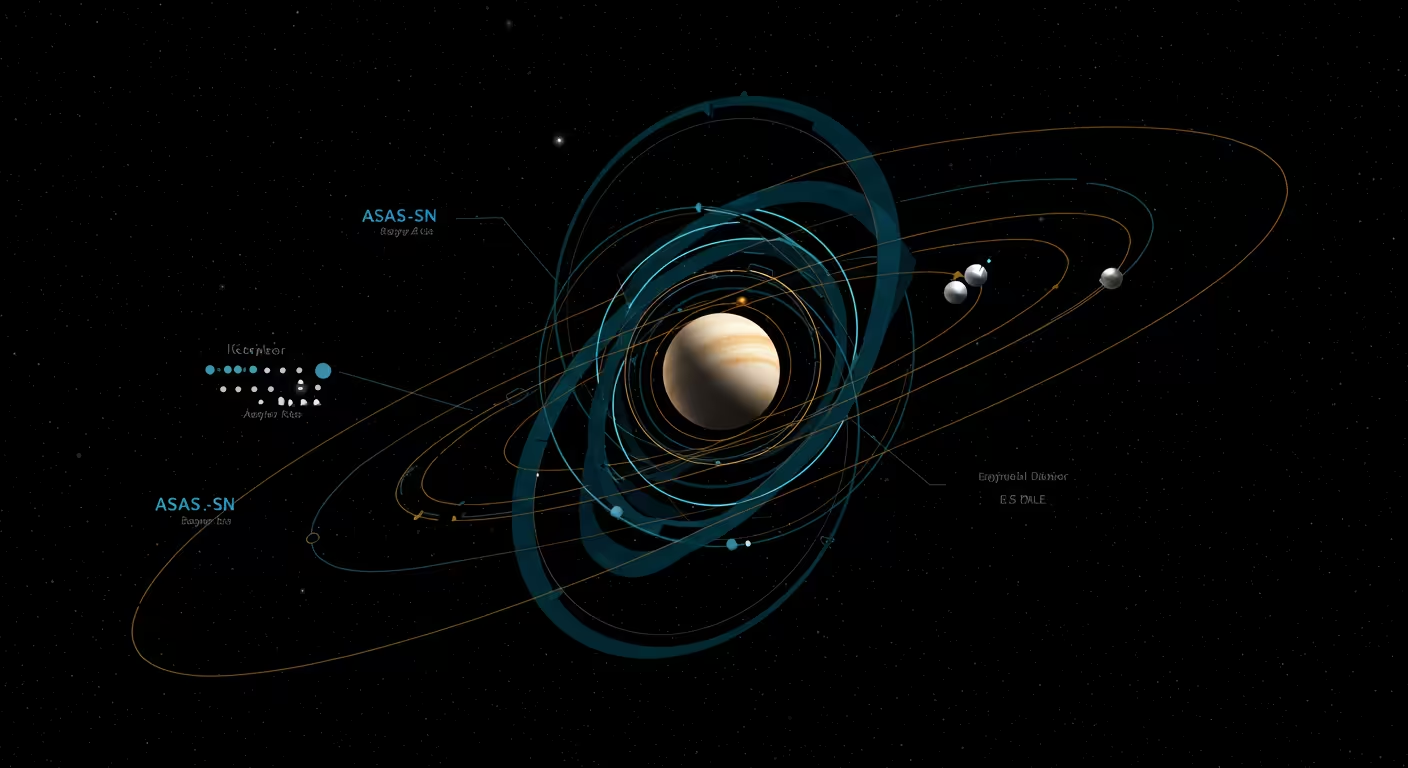- Sections
- Ruby
- Web Development
- Artificial Intelligence
- Urban Planning
- Astronomy
- Issue Navigation
- Previous Issue
- Next Issue
Wednesday, June 18, 2025
The Digital Press
All the Bits Fit to Print
Wednesday, June 18, 2025
All the Bits Fit to Print
Comparing rotational variable stars from Kepler and ASAS-SN data sets

A study compares ~50,000 low-amplitude Kepler rotational variable stars to a previous high-amplitude sample from ASAS-SN, revealing differences in rotation rates, binarity, and star spot activity.
Why it matters: Understanding rotational variables helps probe stellar magnetism, binary systems, and stellar evolution.
The big picture: Kepler variables are mostly slow-rotating, single main sequence stars, unlike the rapidly rotating ASAS-SN sample.
Stunning stat: Kepler rotators show significantly lower binary fractions and star spot activity than ASAS-SN stars.
Quick takeaway: Different surveys reveal distinct populations of rotational variables, emphasizing the diversity of stellar rotation and magnetism.